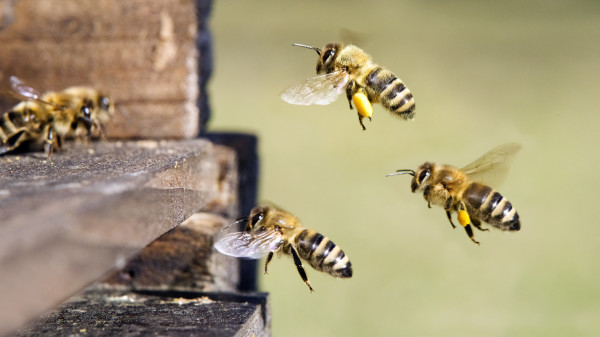A PROJECT to support the beekeeping industry manage varroa has launched a suite of new resources.
AgriFutures Australia and the Australian Honey Bee Industry Council have joined forces to provide the information that will be valuable for agricultural industries across Sunraysia and north-west Victoria.
The project has been a key focus for the AgriFutures honey bee and pollination program following the incursion of varroa destructor in June 2022.
In September last year eradication was deemed no longer technically feasible, leading to a transition to a management phase, aiming to slow the spread and limit the impacts of varroa on Australia’s beekeeping industry.
Its introduction jeopardised the critical role played by 29,800 skilled commercial and recreational beekeepers who collectively manage 530,000 hives.
These hives and their residents are vital for the pollination of agricultural crops and many of our favourite foods, especially in the significant almond industry.
The Resilient Beekeeping in the Face of Varroa project aims to support the industry through what is arguably the biggest challenge it has faced.
“Despite being relatively prepared for the (varroa mite) incursion, there’s still a lot of anxiety within the industry driven by a lack of knowledge,” AHBIC chief executive Danny Le Feuvre said.
“Our primary focus in the industry is on getting information out to the beekeepers on how they can best manage this threat.”
To ensure the most accurate, relevant and comprehensive information was dispersed, the project undertook a literature review, a comprehensive survey and interviews with 21 international beekeeping industry experts.
“We’ve always known education is a critical component of any transition to management process, this resilience project has reaffirmed the view that education is a key component and the No.1 method of slowing the spread,” Mr Le Feuvre said.
The research includes a final report and six fact sheets focusing on the following key areas of concern: slowing the spread, bee health, impact on pollination, integrated pest management, bee breeding and varroa chemical treatments.
The fact sheets will be complemented by a series of interviews and podcasts to ensure accessibility for beekeepers across various platforms.
AgriFutures levied and emerging industries general manager John Smith said ensuring Sunraysia’s beekeepers and hive providers had the educational resources to thrive despite varroa was vital to the sustainability of the industry.
“This will be one of the first varroa communication activities that looks at what we can learn from other countries with varroa and how beekeepers can reduce varroa and remain productive and profitable,” Mr Smith said.
The collection of resources will be hosted on the AHBIC website.
















